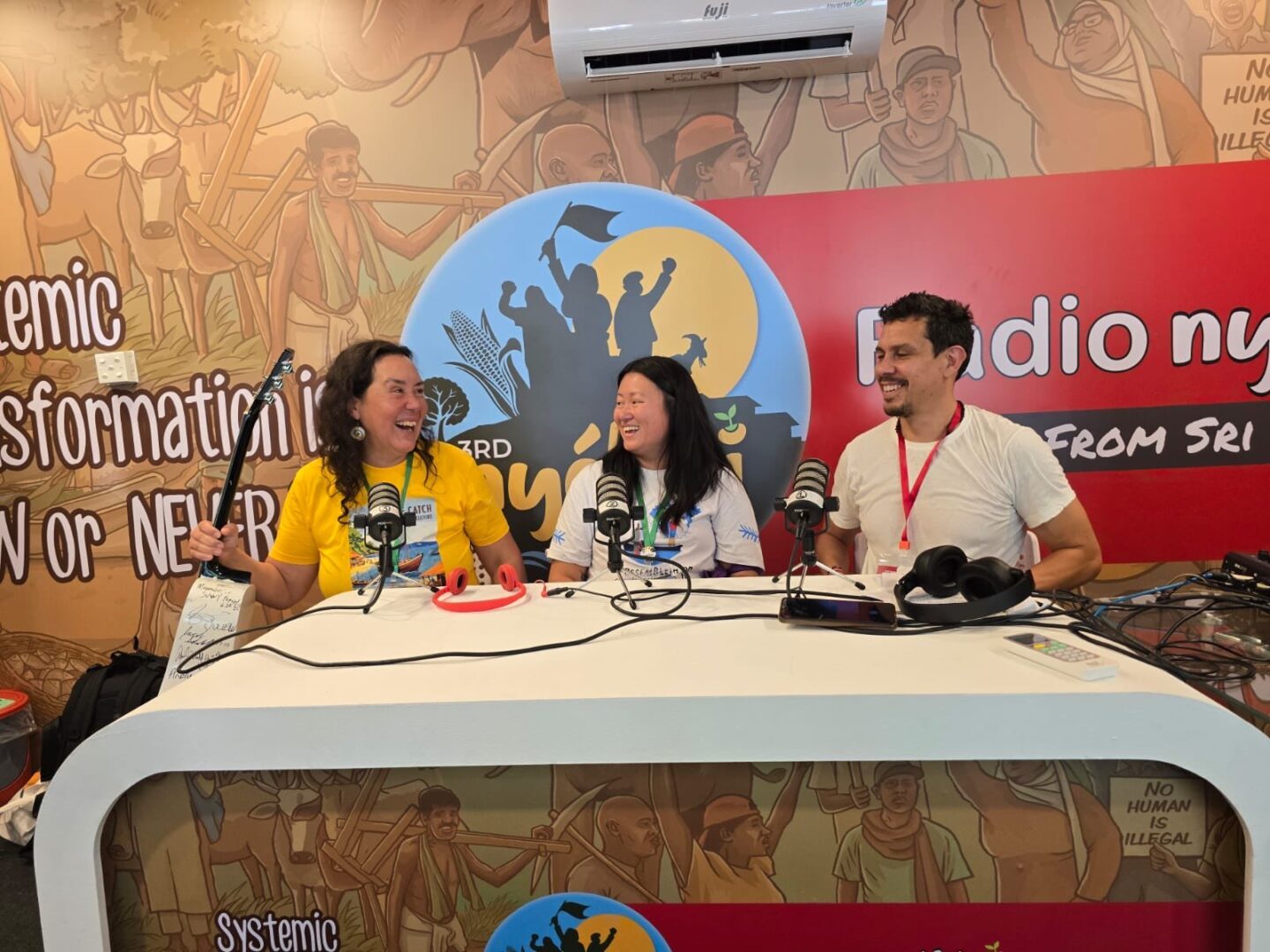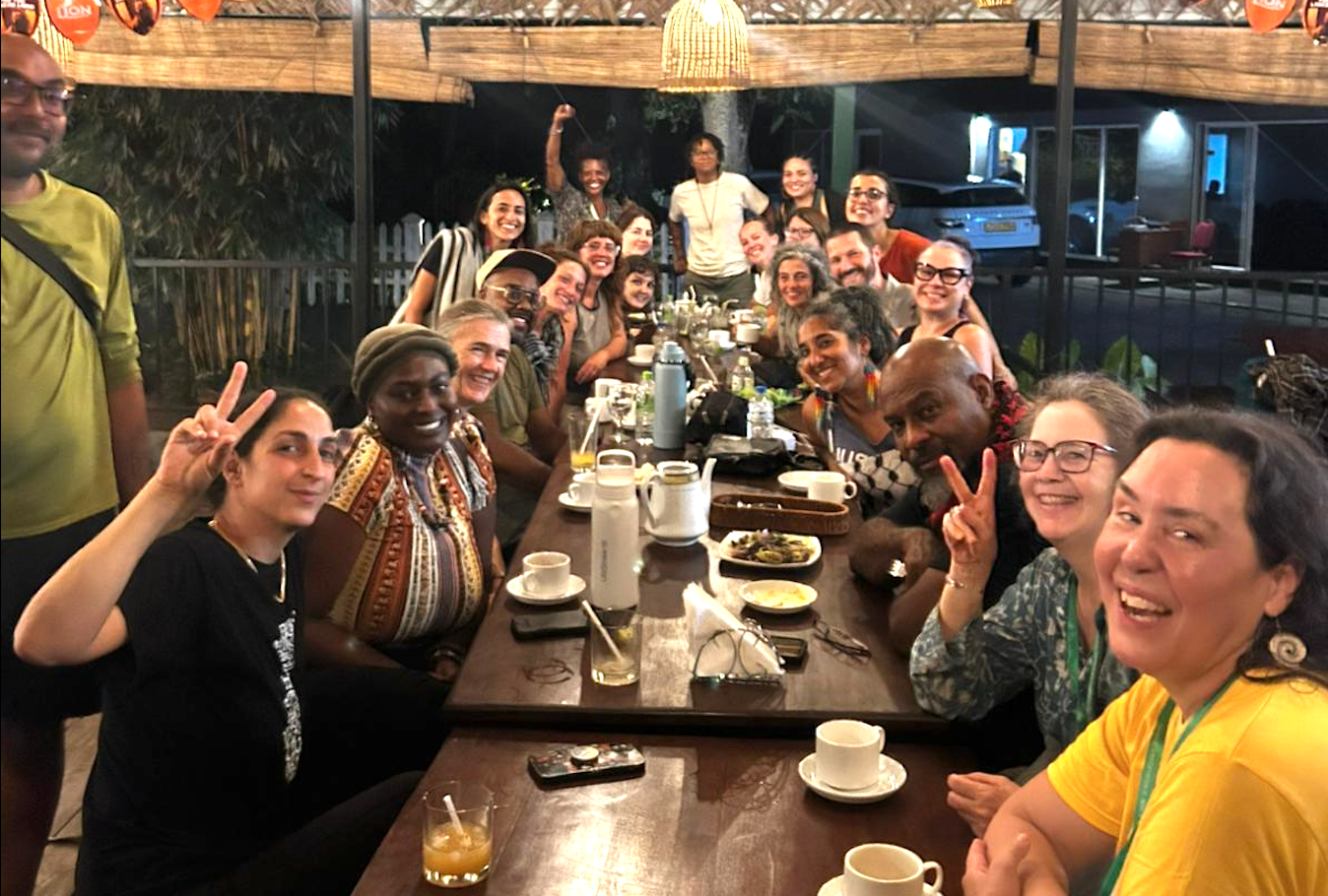A delegation that includes members from the North American Marine Alliance (NAMA) has been in Sri Lanka this week for the 3rd Nyéléni Global Forum on Food Sovereignty. From September 6-13, more than 700 participants from over 100 countries have converged in Sri Lanka to strategize around the future of food systems rooted in justice, ecology, and community self-determination.
This year’s forum is the result of a four-year global organizing process, shaped by thousands of grassroots organizers, food producers, and rural communities who named their most urgent challenges and opportunities. That groundwork set the stage for what’s happening now in Sri Lanka: building the future of the food sovereignty movement from the ground up.
NAMA is attending as part of the National Family Farm Coalition (NFFC) delegation, alongside Family Farm Defenders, Rural Vermont, the Northeast Organic Farming Association, and the Federation of Southern Cooperatives. The delegation joins a group of about 35 other delegates from the U.S. and Canada. Together, they represent not only agriculture and fishing, but also climate justice, food workers, feminist and Indigenous movements, and health justice.

NAMA communications director Feini Yin (middle), and GRAIN’s Andrés Arce Indacochea, share a joyful moment
during their interview on Nyéléni Radio at this year’s forum in Sri Lanka. Photo courtesy of Feini Yin.
“The Nyéléni Forum offers the opportunity for fisher peoples to be architects in the global movement for food sovereignty,” said Feini Yin, NAMA’s Communications Director and a 2025 Nyéléni delegate. “It’s important for threats like the privatization of the ocean commons, the expansion of industrial fishing and fish farming, and the violent displacement of fisher peoples from their territories and livelihoods to be on the agenda. We are looking forward to deepening our connection with other small-scale food producers, food chain workers, and movements for environmental justice, feminism, and Indigenous sovereignty — and to celebrating our collective wisdom, resilience, and power.”
Also present at Nyéléni is Melanie Brown, a fourth-generation small-boat sockeye salmon harvester from Alaska and a member of NAMA’s board. She is participating as a delegate on behalf of the World Forum of Fisher Peoples (WFFP), where she serves on the coordinating committee.
Nyéléni is not a typical conference. It’s a grassroots gathering of peasants, fishers, Indigenous peoples, and allied movements shaping the global struggle for food sovereignty. The word “peasant” is used with pride, reclaimed as an identity uniting small-scale producers who feed most of the world with limited land and resources. This peasant food web is crucial to maintaining biodiversity, culture, and community resilience, especially in the face of today’s global industrial food regime.
“NFFC’s participation in the Nyéléni Forum provides a crucial opportunity for US farmers, ranchers, and fishers to share their experiences and build solidarity with international allies,” said Jim Goodman, NFFC board president and retired Wisconsin dairy farmer. “The engagement of U.S.-based producers in global spaces provides important context and viable alternative models to far-reaching policies driven by corporate interests, neoliberalism, and imperialism that harm small-scale producers and communities domestically and abroad. These international threats demand a united grassroots response that builds the collective power needed to transform food systems.”
As the forum heads into its final days, delegates are working toward shared declarations and action plans that will guide the global food sovereignty movement in the years ahead.
Main photo: NAMA board member and fourth-generation sockeye salmon harvester Melanie Brown (bottom right) smiles as she shares a meal with members of the North American delegation at the Nyéléni Forum. Photo courtesy of Jordan Treakle.

